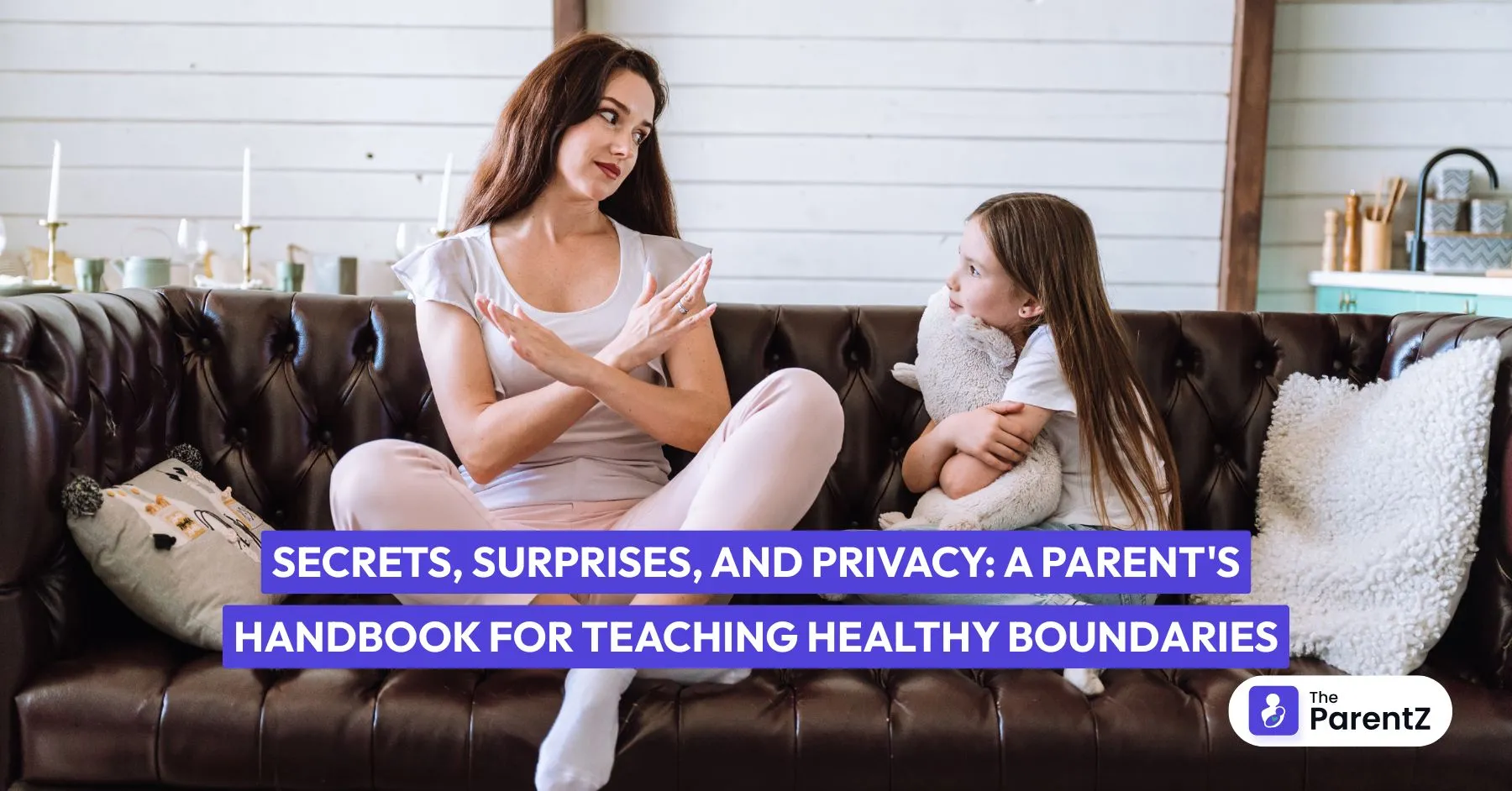"Mommy, can you keep a secret?" Those five simple words can instantly make a parent's heart race. Is this about a surprise birthday card for Grandma or something more concerning? In the world of raising children, handling the murky waters between harmless surprises, necessary privacy, and potentially dangerous secrets isn't always straightforward—yet it's one of the most crucial skills we can teach our kids.
Every day, children encounter situations that test their understanding of what should be shared, what can remain private, and what might be a warning sign. From playground whispers to online interactions, the concepts of secrets, surprises, and privacy shape how children protect themselves and respect others. Getting these distinctions right isn't just about proper social etiquette—it's fundamentally about keeping kids safe while helping them develop healthy relationships throughout their lives.
The Difference Matters
Surprises vs. Secrets
Surprises are temporary and eventually bring joy. Birthday presents, special outings, or handmade cards—these are all meant to be revealed and typically make everyone happy when shared.
Secrets, on the other hand, are meant to stay hidden indefinitely. They often carry emotional weight and might involve keeping information from someone who deserves to know it.
A simple way to explain this to children: "Surprises make people happy when they find out. Secrets might make someone sad or upset if they learned about them."
Privacy vs. Secrecy
Privacy is about respecting personal boundaries and space. Changing clothes, using the bathroom, or writing in a journal—these are private activities that deserve respect.
Secrecy often involves hiding actions or information that might be harmful, inappropriate, or would make someone feel bad if discovered.
Real-Life Scenarios for Teaching
Scenario 1: The Birthday Surprise
"Riya wants to make Dad a special birthday card and asks Mom to help keep it a surprise until Dad's birthday."
Discussion points with your child: This is a healthy surprise because:
- It has a reveal date
- The intention is to bring joy
- Nobody is being hurt by not knowing temporarily
Scenario 2: The Uncomfortable Secret
"An adult asks your child not to tell anyone that they gave them candy, even though you have a rule about asking before accepting food from others."
Discussion points: This is an unhealthy secret because:
- The adult is asking to break family rules
- They're creating distance between the child and parents
- There's no good reason for keeping this information hidden
Scenario 3: Privacy in Action
"Your teenager closes their bedroom door while changing clothes or talking with friends."
Discussion points: This is healthy privacy because:
- Everyone deserves personal space
- It doesn't involve hiding something harmful
- It's age-appropriate and respectful
Safety Rules Every Child Should Know
The No Secrets Rule
Establish a family policy that distinguishes between happy surprises and concerning secrets. A simple guideline: "In our family, we don't keep secrets that make us feel confused, scared, or bad inside."
Body Safety Rules
Teach children that their bodies belong to them, and they can say no to unwanted touches—even hugs from relatives. At the same time, help them understand that certain body-related activities (like bathing) are private but not secret.
The Trusted Adult Network
Encourage your child to identify 3 to 5 trusted adults they could talk to if they're ever confused about a secret or situation. This creates multiple pathways for support if they're ever in an uncomfortable situation.
When Children Keep Secrets
Children might keep secrets for various reasons:
- Fear of getting in trouble
- Protecting someone else
- Being manipulated by others
- Not understanding the situation
Create regular, casual check-ins with questions like:
- "Has anyone ever asked you to keep a secret that made you feel uncomfortable?"
- "What would you do if someone asked you not to tell mom or dad something?"
- "Did anything confusing or weird happen today?"
Respecting Their Privacy While Keeping Them Safe
As children grow, their need for privacy increases—and that's healthy! Some ways to balance respect with safety:
- Knock before entering their rooms
- Ask before sharing their stories or photos with others
- Respect their diaries and personal communications
- Maintain open conversations about online safety without constant surveillance
Beyond Words: Modeling Healthy Boundaries
Children learn by watching. When parents:
- Respect each other's privacy
- Avoid keeping secrets that exclude family members
- Use proper terms for body parts without embarrassment
- Apologize when they accidentally cross boundaries
They teach more effectively than any conversation could.
Conclusion
Sometimes, situations fall into gray areas. A good rule of thumb for children: if keeping something private or secret makes them feel bad inside—scared, confused, or uncomfortable—they should talk to a trusted adult.
The most important message: your children should never feel alone with a troubling secret. When they understand the difference between harmless surprises, healthy privacy, and concerning secrets, they're better equipped to maintain their personal safety and develop healthy relationships throughout life.





Be the first one to comment on this story.